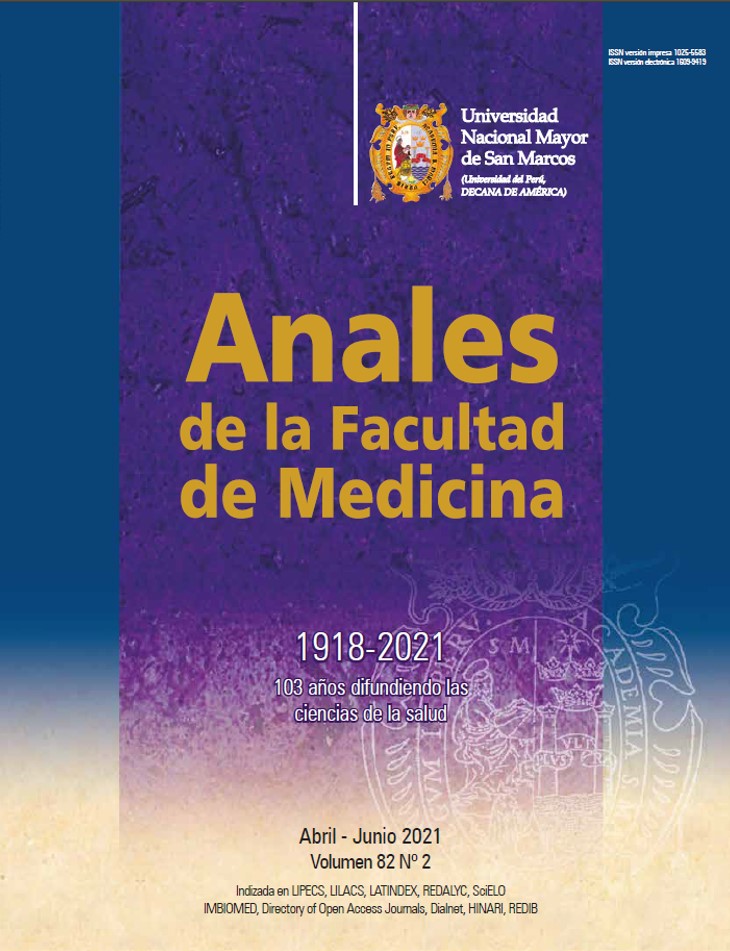Prevention of health care-associated infections: knowledge and practices in resident physicians
DOI:
https://doi.org/10.15381/anales.v82i2.19839Keywords:
Infection Control; Health Care Associated Infections; Health Knowledge, Attitudes, practice; risk factorsAbstract
Objectives. To determine level of knowledge and practices on the measures of prevention of infections associated with health care (HAI) and factors associated with in incoming resident physicians 2018 of a university of Lima, Peru. Methods. A validated questionnaire was applied to 171 resident physicians in a cross-sectional study. Variables studied were age, sex, time as a professional, previous training, origin, type of university of origin, among others. Results. It was observed that 52% are female, 49% had 2 or less years as a medical professional, 49% came from a university in the interior of the country, only 34% occupied a captive vacancy and 71.9% had previous training on HAI prevention measures. 83% of the incoming resident physicians studied showed a low level of knowledge about HAI prevention measures while 68.4% of the incoming resident physicians studied showed inappropriate practices on HAI prevention measures. When performing the multivariate analysis, it showed that entering a medicine specialty was associated with a lower risk of having low level of knowledge (OR: 0.32, 95% CI: 0.11-0.93). The bivariate analysis showed that the longest time as a professional was related to lower risk of having inappropriate practices, this being confirmed when performing the multivariate analysis (OR: 0.936, 95% CI: 0.89-0.99). Conclusions. There is a low level of knowledge about HAI prevention measures and a high proportion with inappropriate practices in incoming residents 2018 on HAI prevention measures. It was observed that the type of specialty is a factor associated with the level of knowledge and the time of professional experience is a factor associated with the type of practice.
Downloads
Published
Issue
Section
License
Copyright (c) 2021 Anales de la Facultad de Medicina

This work is licensed under a Creative Commons Attribution-NonCommercial-ShareAlike 4.0 International License.
Those authors who have publications with this magazine accept the following terms:
- Authors will retain their copyrights and guarantee the journal the right of first publication of their work, which will be simultaneously subject to Creative Commons Attribution License that allows third parties to share the work as long as its author and its first publication this magazine are indicated.
- Authors may adopt other non-exclusive licensing agreements for the distribution of the version of the published work (eg, deposit it in an institutional electronic file or publish it in a monographic volume) provided that the initial publication in this magazine is indicated.
- Authors are allowed and recommended to disseminate their work over the Internet (eg: in institutional telematic archives or on their website) before and during the submission process, which It can produce interesting exchanges and increase quotes from the published work. (See El efecto del acceso abierto ).



